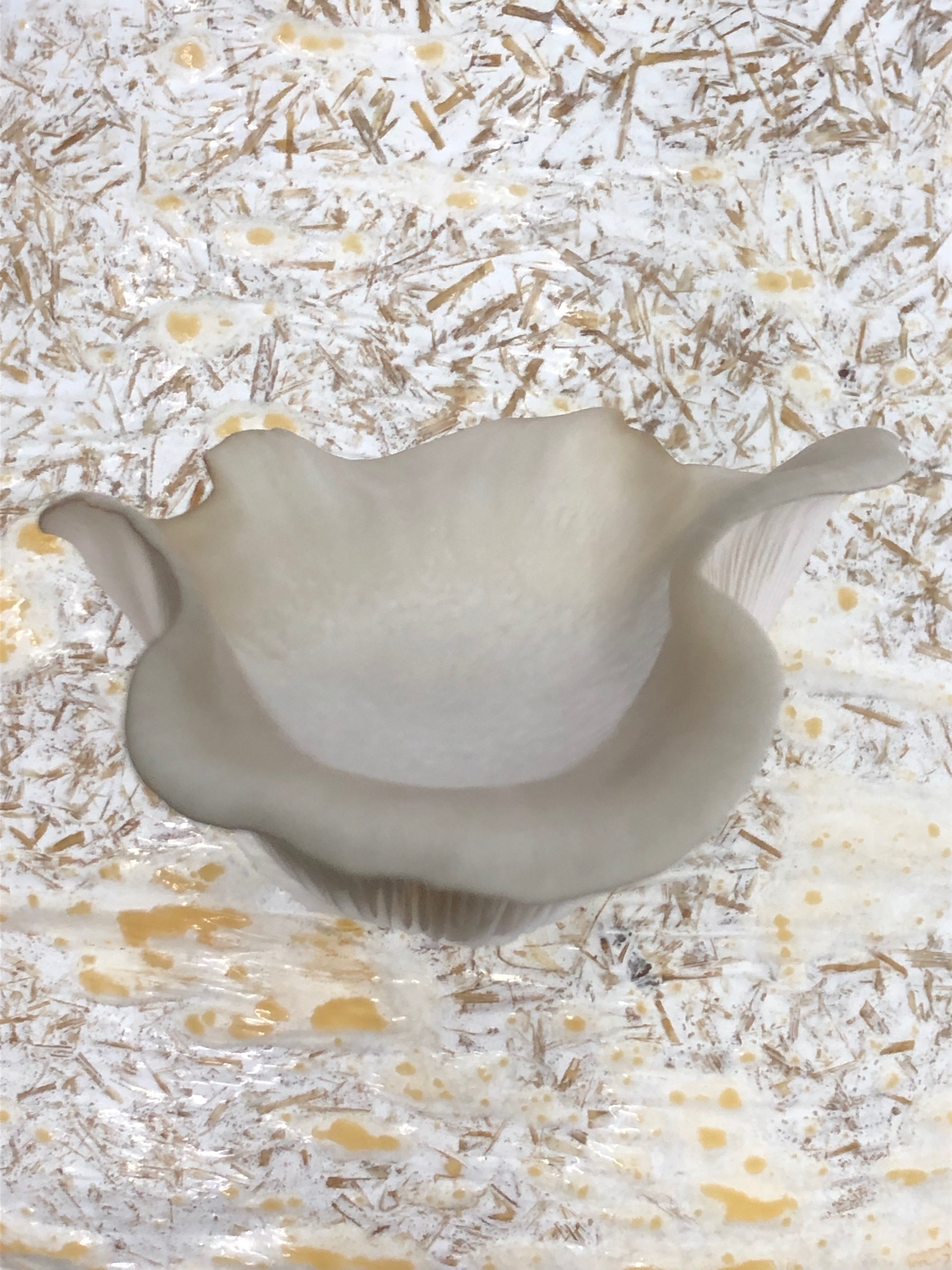UNCONTROLLED LIVES (2019)
Anna Lowenhaupt Tsing refers in her book “The mushroom at the end of the world” to ecological relations by First Nature and Second Nature to the environmental transformations caused by capitalism. Third Nature describes everything that survives despite capitalism. The first living thing to emerge from the soil of the blasted landscape after the atomic bomb on Hiroshima in 1945 was a mushroom. Like rats, raccoons, and cockroaches, mushrooms are willing to put up with some of the environmental messes we humans have made. Yet they are not pests, they are delicious culinary treats. Their aromas are not pleasant, but mouldy and heavy, disturbing even, evoking a sense of sadness in some. They grow fast and stubbornly in a dark and damp environment, some glow at night, some are poisonous, some rare and some create enormous economic values. We can only learn from them: How to live in ruins? Are there possibilities of bio-cultural hope? Do they show us one kind of collaborative survival in an ecosystem on the verge of collapse?
Mushrooms communicate, and they are being communicated through: They are made up of tiny threads called mycelium. These travel underground, connecting the roots of different plants in an area, even different species, allowing them to communicate. Below the forest ground, fungal bodies extend themselves in nets and skeins, binding roots and mineral soils, long before producing mushrooms. Mushrooms are uncontrolled lives and which can guide us, when the controlled world we thought we had fails.
At first step the studio space will be turned into a temporary Greenhouse by using the material that is stored next to the studio space. We will build an environment that is suitable for mushrooms that also gives us the possibility to work together in order to produce art works: The Greenhouse will be turned into a temporary knowledge laboratory. While the mushrooms are growing (2-6 weeks), we will discuss different models of knowledge distribution, strengths and weaknesses of communities, networked communication, collaboration/contamination and survival strategies. The workshop will be a sensory experience, of smell and taste, and a learning experience being part of a growing process, a full cycle of planting, growing and harvesting to which the students will respond in different mediums. Drawing, photography, video, text, audio works and performance. At the same time we will mutually think about the following topics, which will guide us through the one month project: Progress, Collaboration/Contamination, Community, Salvage, Translation, Cohabitation, Curiosity, Care and Survival.
